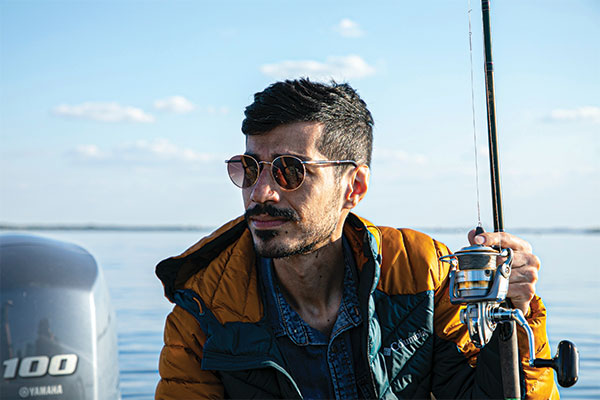A lot of people are concerned about Ultraviolet (UV) rays and their health-related impacts. Prolonged exposure to UV rays can give you a sunburn and increase your chances of skin cancer. They can also cause damage to your eyes — UV exposure is associated with cataracts, photokeratitis, and muscular degeneration, among other diseases. However, it is not difficult to protect yourself if you know what you need to do.
Find out easy and effective ways to protect yourself and your loved ones from (UV) rays and the dangerous diseases they can cause. What to wear, how to cover your head and eyes.
What are UV rays?
UV rays exist across a spectrum. Different kinds of UV rays have different impacts on humans, and not all UV rays are harmful to you. Different UV rays have different wavelengths. Shorter wavelengths imply they can do more damage to you.

UVA rays
UVA rays are like light rays that you can see. They are the low-energy varieties of UV rays that have the potential to reach your retina. Cataracts and macular degeneration are linked to sustained exposure to UVA rays.
UVB rays
UVB rays are responsible for ruining your day at the beach by burning your skin. If the dose of UVB is high enough, it can greatly increase the chances of skin cancer. Fortunately, the ozone layer takes out many of these rays before they can reach us. In low doses, they can increase the production of melanin, which tans the skin.
The cornea protects our eyes from UVB, so these rays are unlikely to affect your eyes.
UVC rays
These are the most dangerous for humans. Thankfully, the ozone layer takes all of them out before they can get to us. Of course, they can become a greater concern if the ozone layer keeps depleting at the current rate.
What should you wear?
Our clothes are the first line of defense we have against the sun. The fabric in our clothes can soak up UV radiation, which is one of our biggest safeguards from skin cancer.
An important concept to know about the clothes you buy is Ultraviolet Protection Factor (UPF). UPF tells you how much UV actually reaches your body through your clothes. The Skin Cancer Foundation recommends clothes with a minimum UPF of 30.
When choosing your summer wardrobes, here are a few factors to consider:
- Color: Darker colors soak up more UV, giving you more protection.
- Material: Fabrics like wool or denim are more protective than lighter, transparent materials.
- Production process: Some materials like cotton contain elements that can soak up more UV rays if they are not bleached.
- Fit: Tight-fitting clothes offer less protection than loose clothes.
How should you cover your head?
Hats are a great way to look trendy and give you shade. They offer excellent protection for the skin on your face as well as your eyes.
But don’t think they are just a summer item — winter snow can reflect the sun and throw some unwelcome UV rays your way, too.
Do you need some shade for your eyes?
Sunglasses have gotten better at shielding your eyes from harmful rays from the sun. Sunglasses today can block 100 percent of all UV rays.
Sunglasses do not just protect the eyes — a good pair will give the skin around your eyes decent protection, too. It is also important to have sunglasses that fit well because if the sunglasses are drooping down, you are compromising your sun shield.
Keep in mind that not all sunglasses are created equal when it comes to protection. Some sunglasses can block only a portion of UV rays, so it is vital to have a professional inspect the sunglasses you choose.
Also, it is recommended you keep them on all the time outside, even while you’re in the shade. Being in the shade does offer more protection for your skin, but structures and landscapes around you can still reflect UV rays into your eyes.
Final thoughts
In many parts of the world, the sun coming out in full glory of the summer calls for celebrations. You can enjoy the sun and the summer even more if you protect yourself. Little protection measures go a long way. The right outfit will keep you safer than poorly applied sunscreen, because while sunscreen needs to be reapplied every two hours, the right set of clothes and sunglasses will cover you the whole day. So protect yourself and enjoy the sun.












